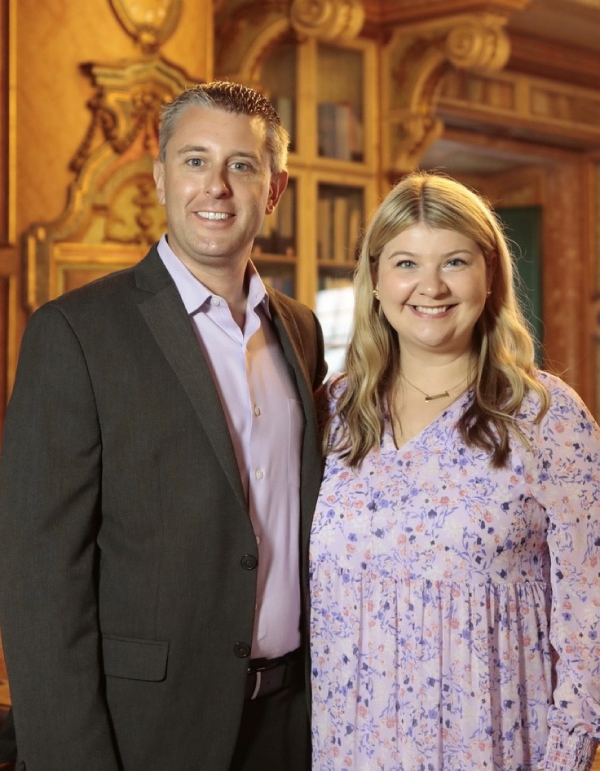The start of a new year is a great time to focus on your health. For many of us, that means setting resolutions to live a healthy, full life. While many people like to reset their health goals in January, Wellstar partners with patients year-round to help them feel their best.
By following tips from Wellstar health experts, you can create realistic resolutions and better your health—making healthy choices a lifelong habit rather than a short-term goal.
Partner with your Wellstar care team
When it comes to your wellness goals, staying healthy starts with a visit to your Wellstar primary care team.
“Your primary care provider will collaborate with you to create a customized care plan and recommend screenings based on factors such as your age, gender and family history,” said Wellstar Primary Care Physician Dr. Cristina Dasoveanu. “Regular screenings can help you stay ahead of issues and catch any health concerns early.”
Know Your Foundational 4
To check your health status and screen for potential medical issues, your clinician will take your Foundational 4 numbers, a few screenings that identify risk factors for some health conditions such as heart disease.
Blood pressure
A blood pressure test helps diagnose hypertension (high blood pressure), hypotension (low blood pressure), heart disease and other conditions.
Blood glucose level
The amount of glucose (sugar) in your blood can indicate the onset of diabetes or risk of heart disease, heart attack or stroke.
Blood cholesterol
Low-density lipoprotein (LDL), often called “bad” cholesterol, can indicate clogged arteries, which may lead to heart disease, heart attack or stroke.
Body mass index (BMI)
A higher level of body fat may indicate an increased risk for heart disease, hypertension (high blood pressure) and diabetes.
Personalized OB/GYN care for women
“Gynecologists partner with women in their healthcare across the lifespan,” said Dr. LeThenia “Joy” Baker, a Wellstar obstetrician and gynecologist. “The first gynecologic visit is recommended between 13 and 15, and the first exam between 18 and 21.”
Gynecologists are uniquely positioned to care for women from adolescence through menopause and beyond.
“We’ll make sure you are up to date on screenings like mammograms and Pap smears, help you make informed decisions about family planning and fertility, and provide medical and surgical treatment for a variety of conditions affecting the female reproductive system,” Dr. Baker said.
Primary care, anywhere
In addition to in-person primary care visits, Wellstar also offers virtual care options. Connect with your Wellstar clinician over the phone or with video on a computer, smartphone or tablet.
“While primary care physicians help patients meet long-term wellness goals, we’re also here for you when you’re sick,” said Wellstar Primary Care Physician
Dr. Georgia Forrest. “Your primary care provider is already familiar with your background and health needs, so we can seamlessly continue that care and help you get back on track when you’re ill.”
If you need to see a specialist such as a
cardiologist,
pulmonologist or
neurologist, your primary care team will refer you for that specialized care while continuing to help you manage your overall wellness.
“Through our patient portal MyChart, specialists and primary care physicians can see test results and visit summaries and stay updated on how each of us is working with the patient,” Dr. Forrest said.
Virtual care made easy with Wellstar Care Now
When you need care quickly,
Wellstar Care Now makes it easy to connect with a trusted clinician anytime, anywhere. Our 24/7/365 virtual care services allow adults and children to receive high-quality medical care from experienced Wellstar clinicians for common health concerns, without the need to schedule an appointment or visit a clinic.
With Wellstar Care Now, you can access care from your phone, tablet or computer whether you are at home, at work or on the go. This convenient and secure option is designed to fit into your life while delivering the same trusted care you expect from Wellstar.
Our team can evaluate symptoms, recommend treatment options and prescribe medication when appropriate. Virtual care is ideal for non-emergency medical needs and helps you get care faster, without waiting rooms or travel time.Wellstar Care Now supports a wide range of everyday health needs, including:
- Upper respiratory infections (cough, cold or flu-like symptoms, sinus, ear issues)
- Bladder infections or urinary tract infections
- Minor burns, bites and cuts
- Skin conditions
- STD testing, prevention, treatment and counseling
- Contraception and menstrual health
- Mental and emotional health (depression, anxiety and stress management)
- General questions and more
Whether you need same-day care or support outside traditional office hours, Wellstar Care Now helps you get the care you need, when you need it.
Getting started is simple. Visit the
Wellstar Care Now page to begin a virtual visit or schedule a same-day appointment.
In an emergency, such as if you are having trouble breathing or experiencing chest pain, call 911.
Learn more about the different types of care Wellstar offers and where to go if you’re not feeling well.





